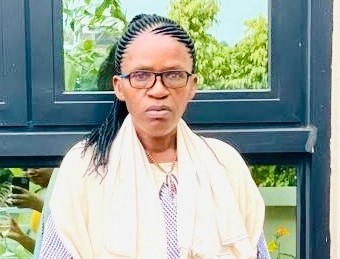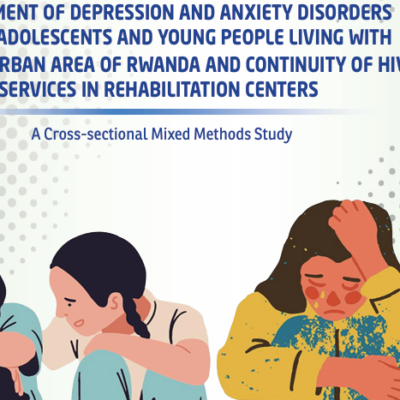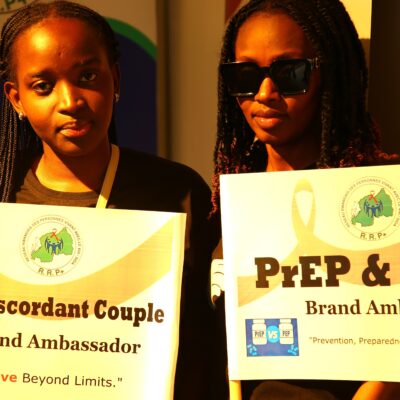With gentle calmness, during an interview with the press,59-year-old Marie Goretti Nyirakamana speaks about her son living with HIV. Her eyes show strong emotions when she talks about the time she was diagnosed with HIV in 1988 and later on her son at the tender age of eight.
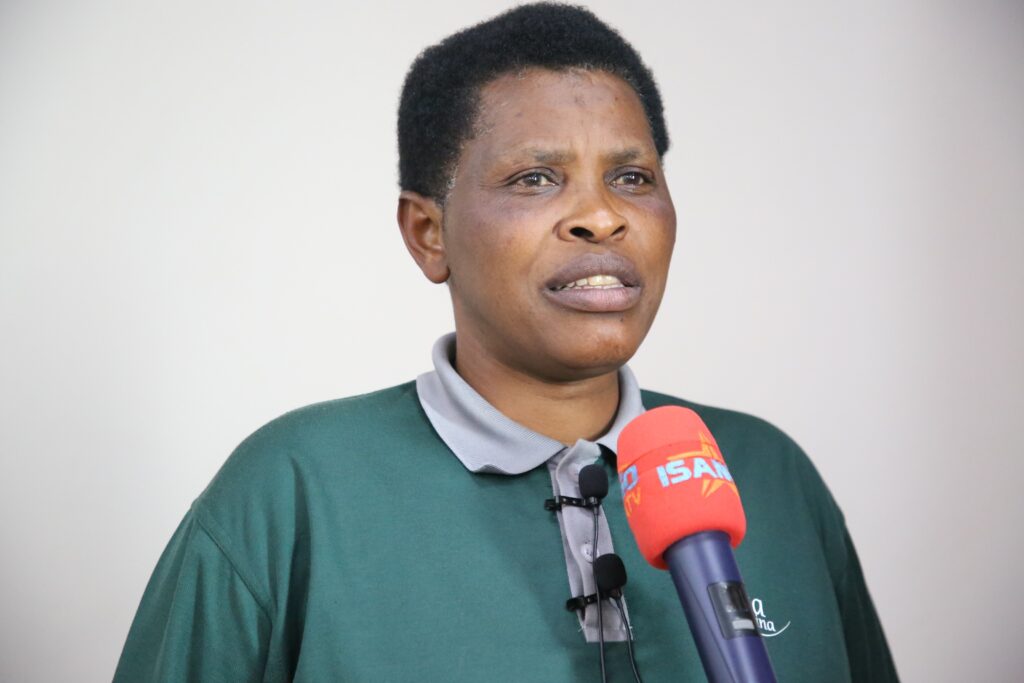
Nyirakamana’s journey together with that of her son has been a battle not only against the virus but also against mental health challenges that often accompany it, especially with the son.
Recent findings from the assessment on depression and anxiety of Adolescents and Young Adults Living with HIV/AIDS. (AYLHIV) and continuity of HIV services in rehabilitation centers, conducted by RRP+ in collaboration with the Rwanda Biomedical Center (RBC), indicate some risk factors. These include experience of sexual abuse, death of family member, changing caregivers, bullied for being HIV + & insufficient feeding.

This assessment reveals a silent crisis affecting adolescents like Nyirakamana’s son, shedding light on their struggles, insights, and the urgent need for comprehensive support.
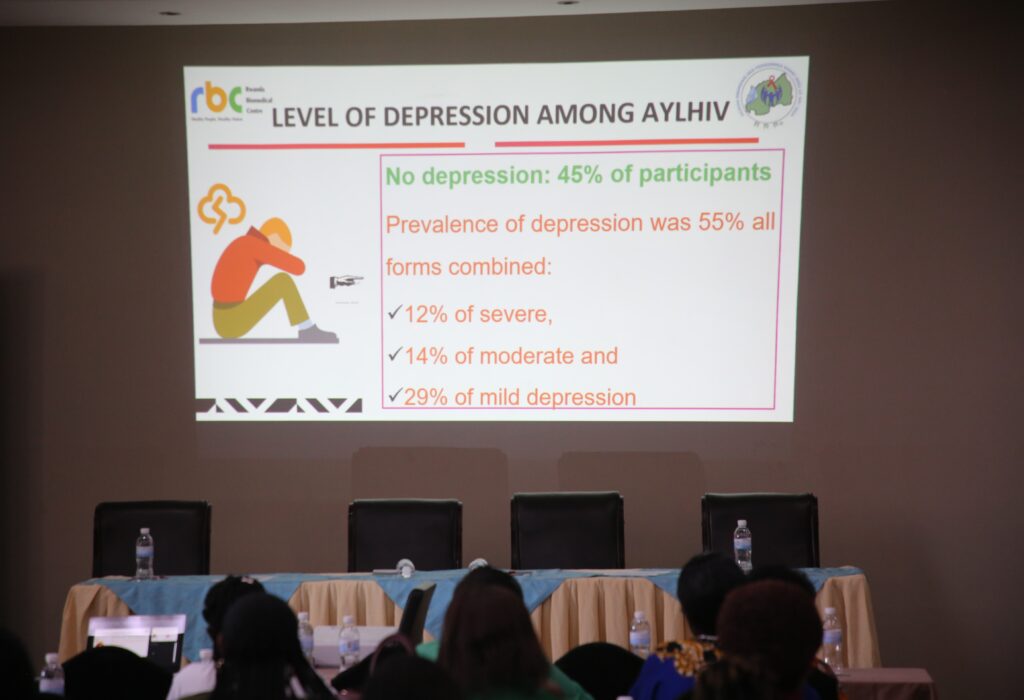
It took the work of counsellors to disclose the positive HIV status of Nyirakamana’s son at the age of eight. Although it was tough moment, she still believes that lack of disclosure at a tender age causes depression, once done a later stage.
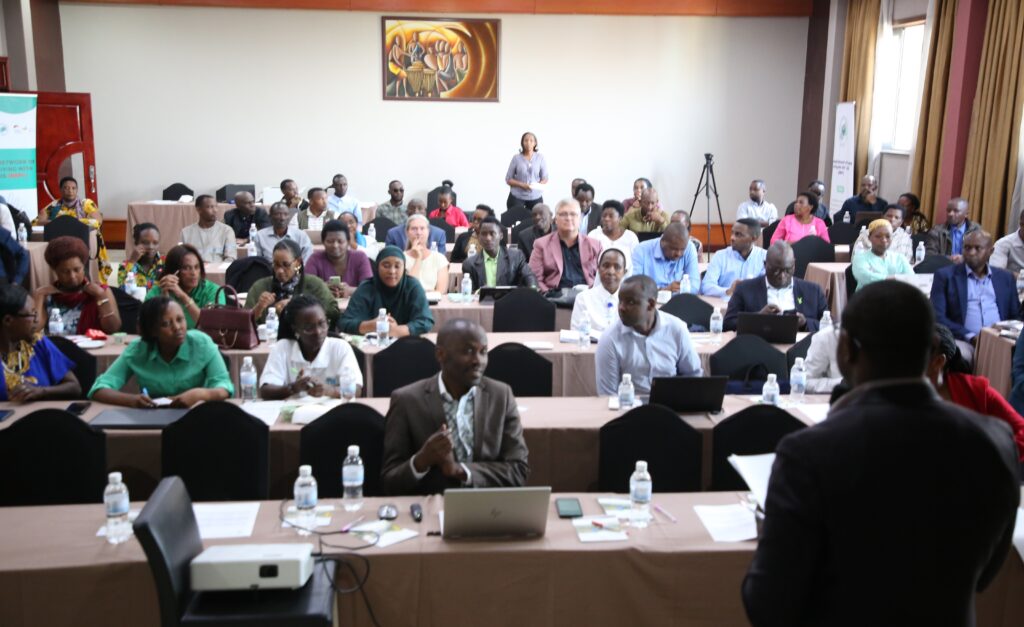
“After disclosure, my son started showing tough signs of depression, inquiring why others were born negative, but only him, which he considered a special betrayal and hatred towards him. I kept pleading, because he had also refused to attend school. However, due to the work of counsellors, he cooled down and continued his education”. Nyirakamana revealed to the press.
Results from different studies done on mental health indicate that among the general population aged between 15-25, the prevalence of mental health disorder is at 16%, while among ALHIV in Gasabo district (2017) at 31%, (2024) for depression at 55% and for anxiety at 41%.
According to the Rwandan Health Management Information System (HMIS 2023) HIV prevalence in adolescent and young is estimated at 9.6%.
Unnoticed Struggle
Adolescents living with HIV face unique challenges that regularly remain hidden to public the notice. This stigma associated with HIV, together with navigating the turbulence of adolescence brings about a storm of psychological distress.
According to the assessment conducted, the level of anxiety among adolescents living with HIV was at 41.6% (3.1% with severe level, 12% moderate and 26.5% with mild anxiety.
Spearheaded Interpretation
Jean D’Armour Ndahimana, the lead consultant, emphasizes the importance of understanding the lived experiences of these adolescents. “Our findings indicate that adolescents living with HIV encounter mental health problems at a significantly level, as indicated through social stigma and isolation,” Ndahimana explains. “Many of these young people feel disliked by their communities and even by their peers and others in rehabilitation centers need continuity of HIV services explored well.”

The assessment focused on determining the prevalence of depression and anxiety among AYLHIV in Rwanda’s urban areas and identifying factors associated with depression/anxiety among AYLHIV, also in urban area.
This study also emphasized other existing challenges which include lack of disclosure mainly for younger adolescents between 10-14 years, lack of Staff dedicated to HIV and mental health, inadequate screening and linkage to care for mental health and HIV. Service and insufficient mental health service at community level.
From Nyirakamana’s story and challenges, one recurring theme was the sense of isolation faced by her son. ” After disclosing his HIV status, my son I didn’t feel like belonging to anywhere,” Nyirakamana added “His belief was that people looked at him differently after finding out he was HIV positive.“
Michael Gasana from RBC/HIV division said the assessment showed depression and isolation among youth Living HIV as a significant threat in Rwanda. He added that the next step is to intensify care among all PLHIV, not only adolescents.
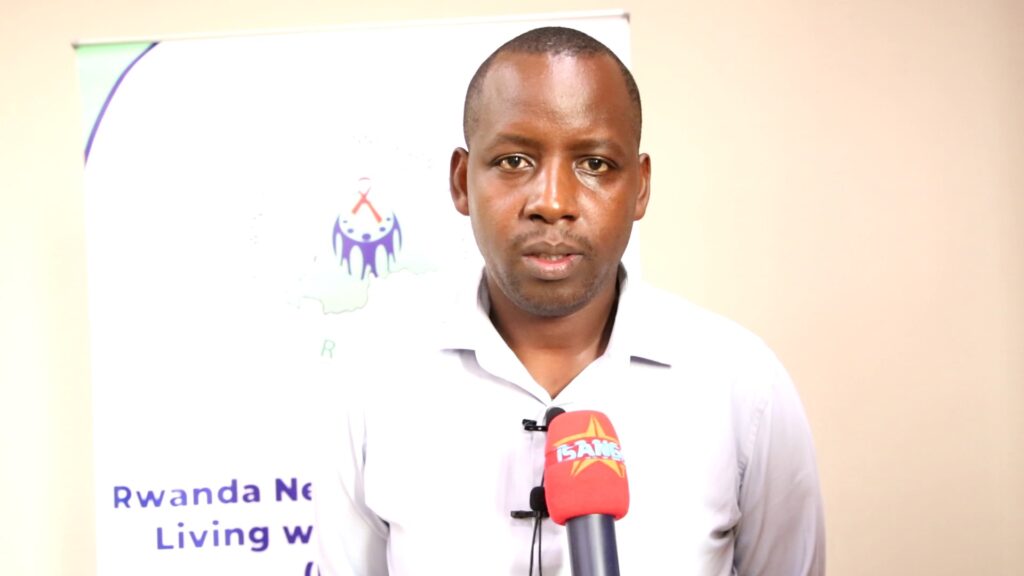
“Among several strategies, we intend to intensify youth HIV awareness campaigns capacity building for peer educators and healthcare service providers and community mobilization”, Gasana further said.
Deo Mutambuka, the Executive Secretary of the Rwanda this assessment is based on the increasing rate of new HIV infections among youth, coupled with the fact that there is need to reinforce sensitization on HIV testing, care and treatment, where youth also are not performing well.

“As an umbrella overseeing the needs of People Living with HIV, in collaboration with the Ministry of Health, RBC and different stakeholders, we were driven by the fact that there is depression in the general population, but strictly concentrating on Adolescents and Young Adults Living with HIV/AIDs, basing on risk factors attached to status”. Said Mutambuka.
The workshop bringing together different stakeholders to share findings and insights from assessment also highlighted on a few recommendations aimed at addressing the mental health needs of adolescents living with HIV.
Recommendations for Change
The findings from this assessment have led to several key recommendations for enhanced Mental Health Services: There is an urgent need for mental health services targeting specifically adolescents with HIV. This includes training healthcare providers to recognize and address the unique psychological challenges young people face.
- Elaborating and disseminating psychosocial package to peer educators while patients are staying in community for long time and visits at health facility reduced:
- Strengthening mental health services within HIV care and treatment programs through integrating routine screening and management of depression and anxiety
- Developing guidelines for health care providers on addressing mental health issues among adolescents and youth adults living with HIV.
A Call to Action
The stories and insights gathered through this assessment provide a clear picture on mental health crisis facing adolescents living with HIV; henceforth, a call to action for policymakers, healthcare providers, and communities to take joint action in addressing the mental health needs of these young people, for healthier lives.
Nyirakamana’s story, like many others, serves as a testimony to resilience in the face of hardships. Her son, now, 22 years old. is into business, after reconciling with the situation and lives a happy life.
As Nyirakamana’s son remains on his journey, based on the support he always receives from peers and counsellors, there is hope strategy remains to ensure that no adolescent will have to suffer in this kind of silence. The time to act is now; breaking the silence and building a brighter future for all adolescents living with HIV.

